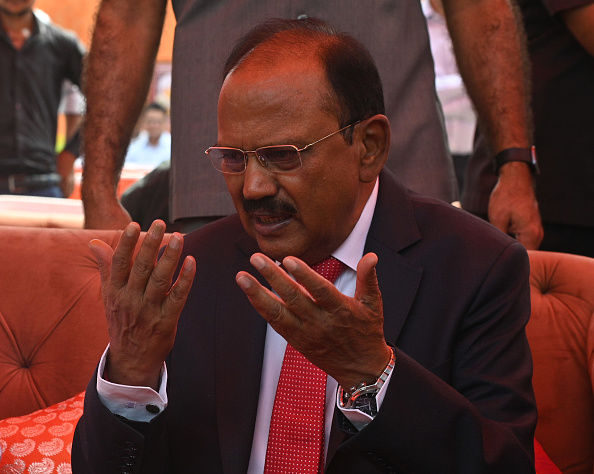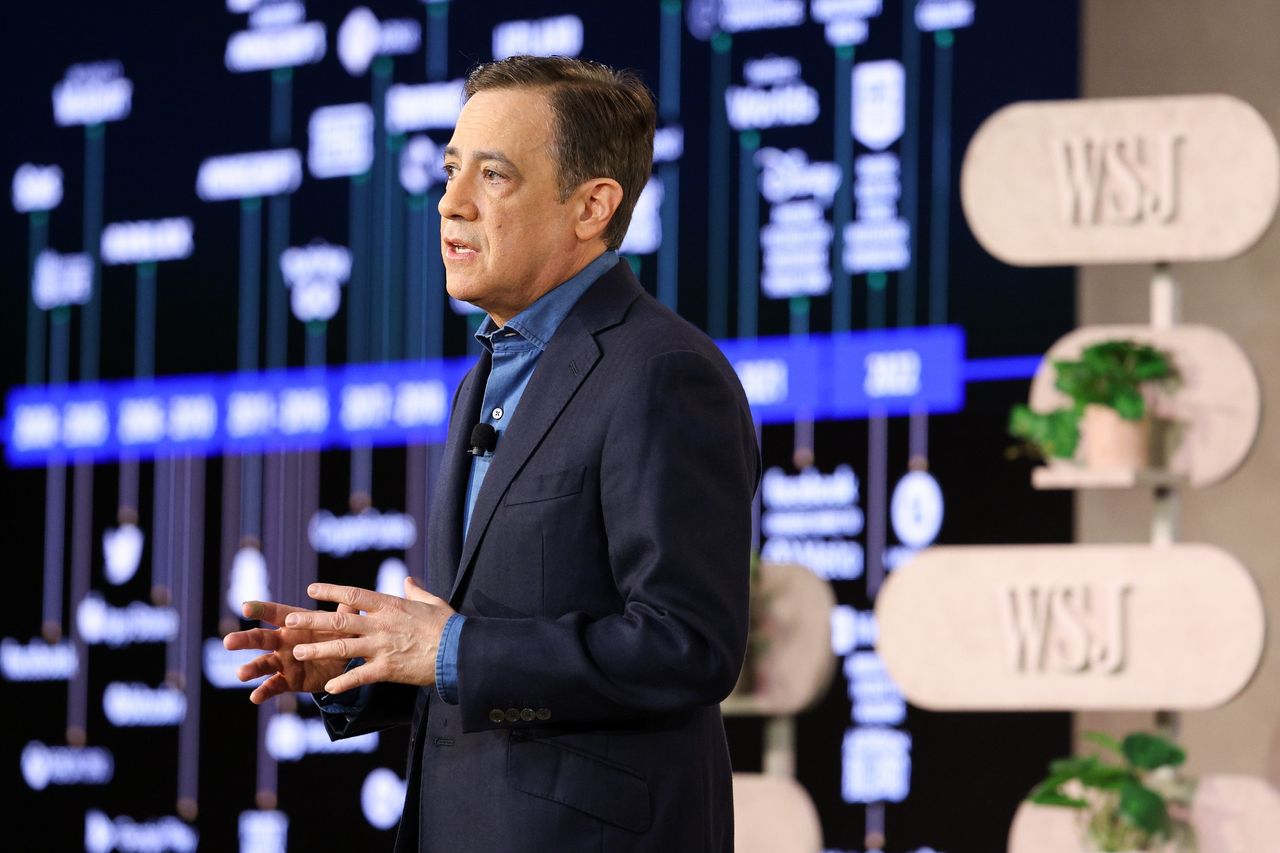U.S. Pursues India as a Supply-Chain Alternative to China
Biden administration turns to New Delhi as it seeks to steer critical technologies away from Beijing
WASHINGTON—The Biden administration is turning to India for help as the U.S. works to shift critical technology supply chains away from China and other countries that it says use that technology to destabilise global security.
Administration officials hosted meetings this week with a delegation of Indian officials and U.S. industry executives, seeking to facilitate technology development and investment in India as part of a broader U.S. push to cultivate alternatives to China.
Challenges arising from Beijing’s expanding global influence have had “a profound impact on the thinking in Delhi just as they have had on the profound impact on the thinking in other capitals,” White House national security adviser Jake Sullivan told reporters on Tuesday. “There is an element of that that forms a backdrop for the discussions here.”
The meetings come on the heels of an agreement with Japan and the Netherlands to start restricting exports of advanced chip-manufacturing equipment to China, joining efforts by the Biden administration to slow China’s military development by cutting access to advanced technologies.
U.S. officials hope those export restrictions create opportunities in India and elsewhere. While India isn’t among the world’s top producers of semiconductors, New Delhi has sought to assert itself as a greater semiconductor player. India is an appealing partner for industries looking to diversify their supply sources. With a population of 1.4 billion people, the country has a massive source of labor and costs are relatively low.
On Tuesday, the administration hosted a task force organised by the Semiconductor Industry Association, which is working in partnership with the Indian Electronics and Semiconductor Association, to develop a “readiness assessment,” aimed at trying to accelerate cooperation and investments. The meetings were attended by top American executives from a range of industries, including defense giant Lockheed Martin and semiconductor producer Micron, administration officials said.
India’s national security adviser, Ajit Doval, led New Delhi’s delegation this week in meetings with Mr. Sullivan and Commerce Secretary Gina Raimondo and other officials.
The meetings underscore a broader U.S. effort to meet challenges from China through alliances with other countries. The Biden administration has given priority to Washington’s relationship with what is known as the Quad—an alliance between India, Australia, Japan and the U.S. that has focused on countering Beijing.
“President Biden really believes that no successful and enduring effort to address any of the major challenges in the world today…is going to be effective without a close U.S.-India partnership at its heart,” a senior administration official said.
However, a number of challenges in recent months have strained relations between Washington and New Delhi. India has maintained a neutral stance on the war in Ukraine and has continued to purchase discounted oil from Russia, rebuffing the Biden administration’s offer to replace Russian oil with U.S. supplies. Instead, India has increased its imports of Russian crude.
Biden administration officials said they understand the enormous domestic demand facing India and said that India continues to buy oil well below the price cap agreed to by allies late last year.
The key, U.S. officials said, is to offer India alternatives. The administration remains hopeful that it can ween India off purchasing Russian military equipment by offering incentives for it to diversify. Mr. Sullivan said generally, the U.S. is doing that through joint production and development. Top priorities in that effort include joint development of jet engines, artillery systems, armoured infantry, vehicles and maritime security.
General Electric has just submitted a proposal to the U.S. government for a jointly produced jet engine in the defence technology space.
“This is the kind of thing where we’re looking to make fast and ambitious progress,” Mr. Sullivan said.
India has also expressed frustration that two years into the Biden administration, there remains no U.S. ambassador. Earlier this month, the White House submitted to the Senate dozens of presidential selections who failed to win confirmation last year.
India is among a number of countries to also call for an overhaul to the U.S. H-1B visa, a nonimmigrant visa that allows U.S. companies to employ foreign workers in specialty occupations that require theoretical or technical expertise. Advocates have called for reforms to the program, including an increase in the annual cap, as well as for a more simplified process.
The State Department has made some progress on the issue, but employers expect delays in obtaining visas to continue in some places, including India. Visitor visas will likely also remain problematic.
 Copyright 2020, Dow Jones & Company, Inc. All Rights Reserved Worldwide. LEARN MORE
Copyright 2020, Dow Jones & Company, Inc. All Rights Reserved Worldwide. LEARN MORE
This stylish family home combines a classic palette and finishes with a flexible floorplan
Just 55 minutes from Sydney, make this your creative getaway located in the majestic Hawkesbury region.
New research suggests spending 40 percent of household income on loan repayments is the new normal
Requiring more than 30 percent of household income to service a home loan has long been considered the benchmark for ‘housing stress’. Yet research shows it is becoming the new normal. The 2024 ANZ CoreLogic Housing Affordability Report reveals home loans on only 17 percent of homes are ‘serviceable’ if serviceability is limited to 30 percent of the median national household income.
Based on 40 percent of household income, just 37 percent of properties would be serviceable on a mortgage covering 80 percent of the purchase price. ANZ CoreLogic suggest 40 may be the new 30 when it comes to home loan serviceability. “Looking ahead, there is little prospect for the mortgage serviceability indicator to move back into the 30 percent range any time soon,” says the report.
“This is because the cash rate is not expected to be cut until late 2024, and home values have continued to rise, even amid relatively high interest rate settings.” ANZ CoreLogic estimate that home loan rates would have to fall to about 4.7 percent to bring serviceability under 40 percent.
CoreLogic has broken down the actual household income required to service a home loan on a 6.27 percent interest rate for an 80 percent loan based on current median house and unit values in each capital city. As expected, affordability is worst in the most expensive property market, Sydney.
Sydney
Sydney’s median house price is $1,414,229 and the median unit price is $839,344.
Based on 40 percent serviceability, households need a total income of $211,456 to afford a home loan for a house and $125,499 for a unit. The city’s actual median household income is $120,554.
Melbourne
Melbourne’s median house price is $935,049 and the median apartment price is $612,906.
Based on 40 percent serviceability, households need a total income of $139,809 to afford a home loan for a house and $91,642 for a unit. The city’s actual median household income is $110,324.
Brisbane
Brisbane’s median house price is $909,988 and the median unit price is $587,793.
Based on 40 percent serviceability, households need a total income of $136,062 to afford a home loan for a house and $87,887 for a unit. The city’s actual median household income is $107,243.
Adelaide
Adelaide’s median house price is $785,971 and the median apartment price is $504,799.
Based on 40 percent serviceability, households need a total income of $117,519 to afford a home loan for a house and $75,478 for a unit. The city’s actual median household income is $89,806.
Perth
Perth’s median house price is $735,276 and the median unit price is $495,360.
Based on 40 percent serviceability, households need a total income of $109,939 to afford a home loan for a house and $74,066 for a unit. The city’s actual median household income is $108,057.
Hobart
Hobart’s median house price is $692,951 and the median apartment price is $522,258.
Based on 40 percent serviceability, households need a total income of $103,610 to afford a home loan for a house and $78,088 for a unit. The city’s actual median household income is $89,515.
Darwin
Darwin’s median house price is $573,498 and the median unit price is $367,716.
Based on 40 percent serviceability, households need a total income of $85,750 to afford a home loan for a house and $54,981 for a unit. The city’s actual median household income is $126,193.
Canberra
Canberra’s median house price is $964,136 and the median apartment price is $585,057.
Based on 40 percent serviceability, households need a total income of $144,158 to afford a home loan for a house and $87,478 for a unit. The city’s actual median household income is $137,760.
Consumers are going to gravitate toward applications powered by the buzzy new technology, analyst Michael Wolf predicts
Just 55 minutes from Sydney, make this your creative getaway located in the majestic Hawkesbury region.























